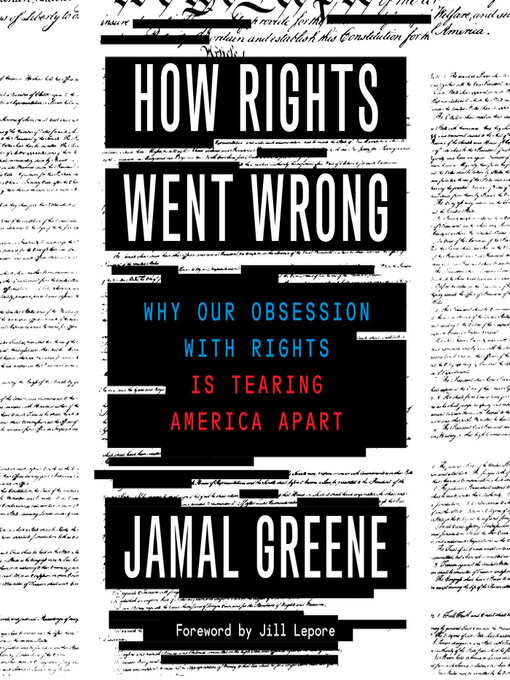AMERICAN ASSOCIATION OF PUBLISHERS PROSE AWARD FINALIST | "Essential and fresh and vital . . . It is the argument of this important book that until Americans can reimagine rights, there is no path forward, and there is, especially, no way to get race right. No peace, no justice."—from the foreword by Jill Lepore, New York Times best-selling author of These Truths: A History of the United States
An eminent constitutional scholar reveals how our approach to rights is dividing America, and shows how we can build a better system of justice.
You have the right to remain silent—and the right to free speech. The right to worship, and to doubt. The right to be free from discrimination, and to hate. The right to life, and the right to own a gun.
Rights are a sacred part of American identity. Yet they also are the source of some of our greatest divisions. We believe that holding a right means getting a judge to let us do whatever the right protects. And judges, for their part, seem unable to imagine two rights coexisting—reducing the law to winners and losers. The resulting system of legal absolutism distorts our law, debases our politics, and exacerbates our differences rather than helping to bridge them.
As renowned legal scholar Jamal Greene argues, we need a different approach—and in How Rights Went Wrong, he proposes one that the Founders would have approved. They preferred to leave rights to legislatures and juries, not judges, he explains. Only because of the Founders' original sin of racial discrimination—and subsequent missteps by the Supreme Court—did courts gain such outsized power over Americans' rights. In this paradigm-shifting account, Greene forces readers to rethink the relationship between constitutional law and political dysfunction and shows how we can recover America's original vision of rights, while updating them to confront the challenges of the twenty-first century.
Audiobook read by Ryan Vincent Anderson.

